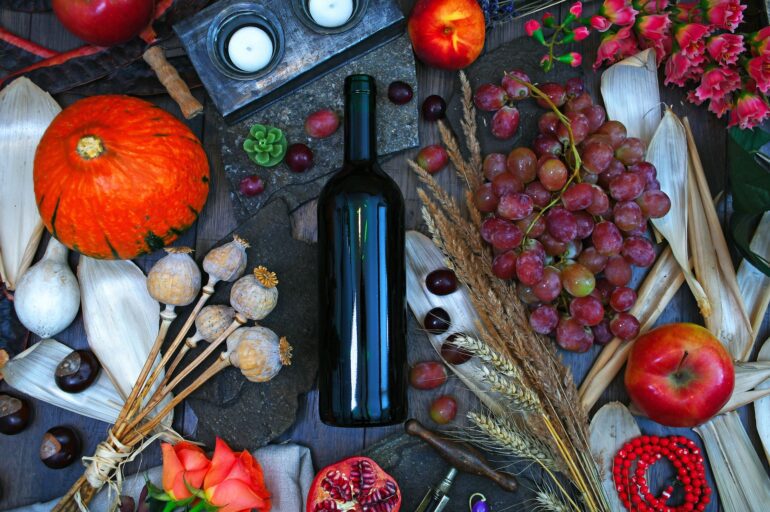TL;DR:
- AI-powered wine recommendation apps, such as Sippd and FinpåVin, are transforming the wine selection process.
- Sippd stands out by integrating AI technology from its inception, providing personalized wine recommendations based on user preferences.
- Users complete a wine quiz, and the AI generates taste matches, helping users find wines they will enjoy.
- Sippd allows users to scan wine lists or labels to receive taste match scores for each bottle.
- FinpåVin, developed by Nicholas Benz, uses AI to continually refine its wine recommendations based on user preferences.
- The app also aims to create unique personalities for wines and develop a wine-centric social network for users to learn more about wines.
- Wine experts have mixed opinions on wine apps, with some seeing their potential in connecting with consumers and improving wine understanding, while others believe independent shops or websites offer a more curated selection.
- Professor Sandra Wachther suggests that personal exploration and discovery in wine selection should not be entirely replaced by app recommendations.
Main AI News:
Artificial intelligence (AI) has emerged as a valuable tool in the realm of wine selection, revolutionizing the way people make their choices. Blake Hershey, the mastermind behind Sippd, an AI-powered wine recommendation app, was inspired by his wife’s frequent requests for suggestions while dining out with friends. Recognizing the need for a simpler method of choosing a bottle, whether in a restaurant, supermarket, or wine shop, Hershey set out to create a solution that leveraged the power of technology.
Despite the remarkable advancements in technology, the traditional process of navigating through extensive wine lists filled with obscure terminology and ultimately relying on the waitstaff’s recommendations, even when unfamiliar with personal preferences, seemed antiquated to Hershey. Thus, the concept of Sippd was born, distinguishing itself from other wine recommendation apps by integrating AI from its inception.
New users embark on their Sippd journey by completing an online wine quiz that analyzes various preferences such as color, body, acidity, flavor, sweetness, and price. The app’s AI software then takes over, undertaking the arduous task of generating thousands of personalized wine recommendations referred to as “taste matches.” These recommendations are assigned percentage scores, with a perfect match aiming for 100%.
Armed with their taste match scores, users can utilize their mobile phone’s camera for scanning wine lists or labels, instantly receiving information on how well each bottle aligns with their preferences. As users continue to engage with the app and share details about their wine purchases, Sippd’s AI further refines its recommendations, striving for ever-increasing accuracy.
Hershey emphasizes that novice wine enthusiasts are often overwhelmed by the multitude of choices available to them, lacking guidance on where to begin exploring their preferred flavors, characteristics, and styles. To address this, Sippd’s team developed an introductory quiz, providing an accessible and uncomplicated entry point into the vast world of wine.
While Sippd is currently exclusive to the United States, boasting a user base of 100,000 individuals, this Maryland-based app operates on a freemium model, generating revenue by enabling users to purchase recommended wines directly through the app for convenient delivery.
In Norway, Nicholas Benz, a tech entrepreneur, introduced the initial version of his AI-powered wine recommendation app, FinpåVin, in 2020. Describing the AI as a living entity that continuously evolves its recommendations based on user preferences, Benz aims to expand the app’s reach beyond the domestic market and into international territories.
Benz also envisions training the AI to create distinct personalities for wines, allowing them to “speak” and interact with users. Moreover, he plans to develop a wine-centric social network where each bottle shares multimedia content and textual updates, further enriching users’ knowledge and experience.
However, the opinions of wine experts regarding such apps are diverse. John Downes, a master of wine, believes that properly utilized wine apps can greatly benefit individuals, bridging the gap between the wine trade and the average consumer. On the other hand, wine writer Jamie Goode expresses skepticism, claiming that wine apps often overpromise and underdeliver. Goode contends that the complexities of breaking down a wine into its component parts and understanding its qualities make it challenging to create a meaningful app-based experience. Instead, he recommends seeking out reputable independent shops or websites that curate carefully selected wines for a more enriching exploration.
At Oxford University, Professor Sandra Wachther, an expert in technology and regulation, investigates the legal and ethical implications of AI. Despite her extensive knowledge in the field, she argues that certain areas, such as the enjoyment of smells and tastes, are best left to individuals’ personal discovery, rather than relying solely on app recommendations. Wachther suggests that the joy of following one’s own instincts and being pleasantly surprised by a dish or beverage outweighs the reliance on technology.
However, Alicia Ortiz, the head of marketing at Sippd, rebuts such concerns by emphasizing the app’s goal of assisting people, particularly beginner wine enthusiasts, in their quest for a satisfying wine experience. By eliminating the need for guesswork and extensive research, Sippd empowers users to indulge in the simple pleasure of sipping and savoring without unnecessary distractions.
Conclusion:
The emergence of AI-powered wine apps like Sippd and FinpåVin indicates a significant shift in the market, offering consumers innovative tools to navigate the vast world of wines. These apps leverage AI technology to provide personalized recommendations, making it easier for beginners to choose wines aligned with their preferences. The integration of features like wine scanning and social networking further enhances user engagement and knowledge-sharing.
While there are varying opinions among wine experts, these apps present valuable opportunities for businesses to connect with consumers, particularly those seeking accessible and tailored wine experiences. However, it’s important to acknowledge that personal exploration and the element of surprise still hold value in the wine selection process, warranting a balanced approach between technology and individual preference.

